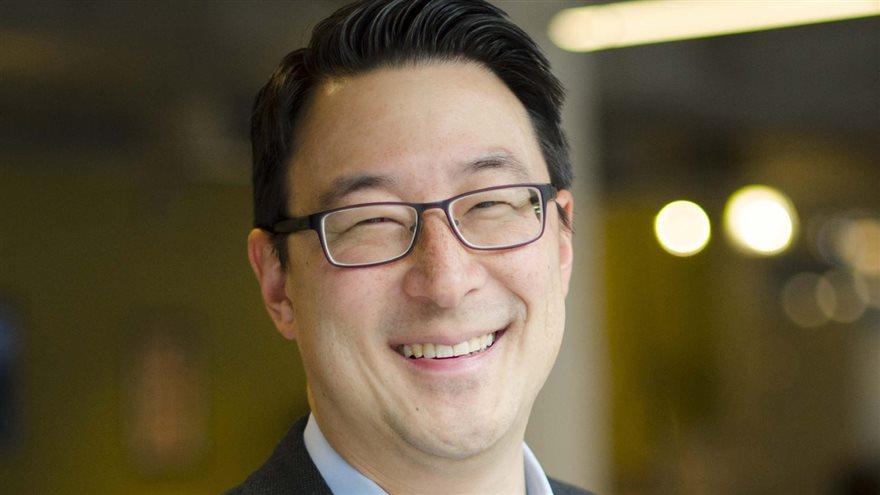Hallelujah or Hype? A Q&A on MOOCs with Mike Scheuermann

- Drexel’s Youngmoo Kim Named Vice Provost for University and Community Partnerships
- $1.1 Million Howard Hughes Medical Institute Grant Will Support Drexel’s Efforts to Create a More Inclusive Learning Environment for STEM Students
- Drexel University First-Year Building New Rover
- NIH Grant to the Academy of Natural Sciences of Drexel University and the School of Education Supports Early Childhood Learning

With the word (or acronym) on everyone’s lips, Drexel faculty and professional staff got together on Aug. 13 for a day-long symposium on MOOCs. Because it’s Drexel, many were already experimenting in the space, and all brought an open mind to the discussion. DrexelNow spoke about MOOCs at Drexel with event organizer Mike Scheuermann, associate vice president for instructional technology support and executive director of Drexel’s Online Learning Council. Scheuermann has facilitated online graduate courses at Drexel for 13 years.
What are some of the most interesting ideas about MOOCs at Drexel?
We could offer MOOCs as a niche strategy to attract students that Drexel would otherwise be unable to engage. And MOOC experiences could certainly inform what we do across the full range of our course delivery methods. For example, we might be able to help faculty teach increasing numbers of students using new technologies and approaches garnered from running MOOCs. And MOOCs focused on writing, college-prep and STEM topics could help us better onboard Drexel freshmen and improve our RPG [retention-progress-graduation] performance.
How were the participants in your symposium feeling about MOOCs?
There was a high degree of interest and excitement. Several colleagues asked “How can we get started?” Trepidation seemed non-existent, and the conversation indicated that the spirit, intent and application of MOOCs fit Drexel’s lexicon. We need to be in this space, in a reasoned and meaningful way. One attendee praised the symposium’s “think tank” approach, one seldom used these days.
Some academic units are moving forward already. Karl Okamoto from the law school got us started here last year, developing the ApprenNet application and using it in his first MOOC with 870 registrants. The College of Nursing and Health Professions has already started what they call “Mini-MOOCs,” and they’re expanding that approach as we speak. The iSchool is close behind. Others brought up the possibility of Drexel offering a MOOC for students throughout the Philadelphia School System.
What factors make the MOOC model a good fit for Drexel?
Our academic and administrative professionals are always out front and operating “at the edges,” as they say. MOOCs fit our practice and reputation very well in that sense.
From a practical angle, our learning management system vendor will enable Drexel to run MOOCs on vendor servers as part of our existing relationship. We’ll be able to charge tuition from MOOC registrants should we choose to; there are no restrictions on how many MOOCs we run or how many registrants we have; and this will be free to Drexel.
Above all else, MOOCs can inform our academic practice whether we are engaging Drexel students in face-to-face, hybrid or online courses. This is the real value in running some initial MOOCs—we can learn from experience rather than just from others’ findings.
Conversely, what factors present challenges in developing MOOCs at Drexel?
The credit versus non-credit issue appears to be a sticking point for some. Ludo Scheffer [incoming Faculty Senate president and professor of psychology] shared highlights of the report of the Senate Committee on Academic Affairs on whether Drexel should grant credit for MOOCs. The SCAA recommended further discussion, particularly in the areas of Drexel’s mission and its core elements of experiential learning and entrepreneurship.
That said, if initial Drexel MOOCs are non-credit courses, the units can run them, determine how they went and make informed decisions about next steps. Later, the broadened discussion might include MOOCs for credit. A participant asked how much credit-bearing MOOCs would actually differ from the credit we give for high school advanced placement courses, or successfully completed DANTES [Defense Activity for Non-Traditional Education Support] or CLEP [College Level Examination Program] tests.
What role do you see MOOCs playing in the landscape in the future, both here at Drexel and across higher education?
Some say MOOCs are game-changers that will fundamentally alter higher education as we know it, inexorably and soon. Others dismiss them as the latest passing fad. But Drexel practitioners have always been quick to try innovative and creative approaches, and learn from them. They’re especially interested if they can become better at what they do with their academic offerings, in pursuit of enhancing the overall educational experiences of Drexel students.
Across higher education we’ll see MOOCs become more multidimensional. If more reputable institutions leverage MOOCs and grant credit, like Georgia Tech announced just recently, everyone best keep their finger on the pulse of these emerging developments.
Our symposium was just the beginning of this conversation. Attendees didn’t necessarily advocate running MOOCs full-bore, or not running them. Drexel already “has its toe in the water,” as Fran Cornelius from the College of Nursing and Health Professions said. Transparent and open dialogue, wonderfully exhibited during this initial discussion, will ensure that Drexel’s subsequent MOOC activity is high-quality, informative and value-laden—whatever form it takes.
Drexel News is produced by
University Marketing and Communications.